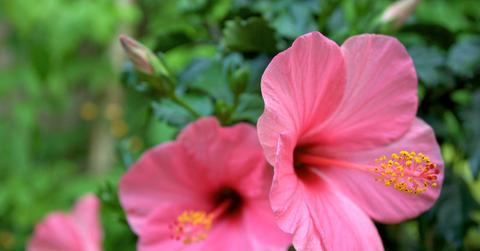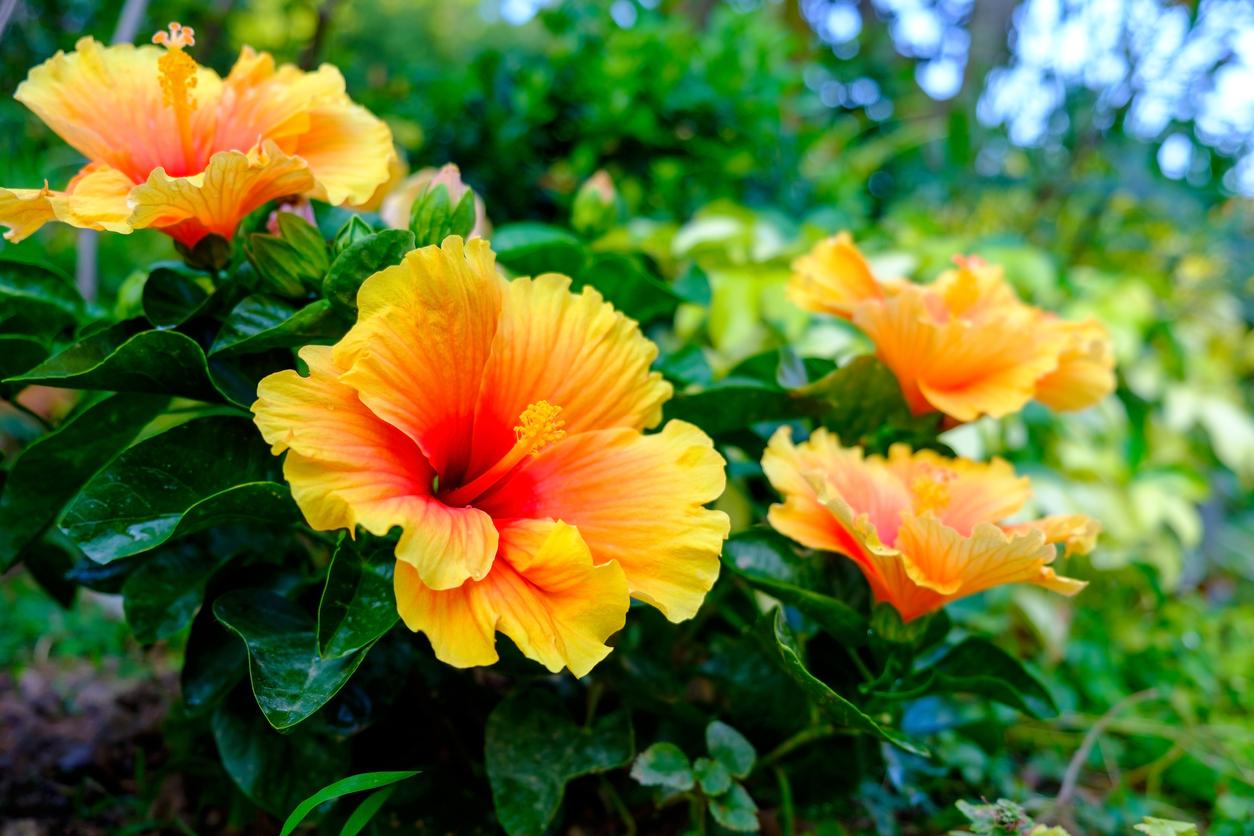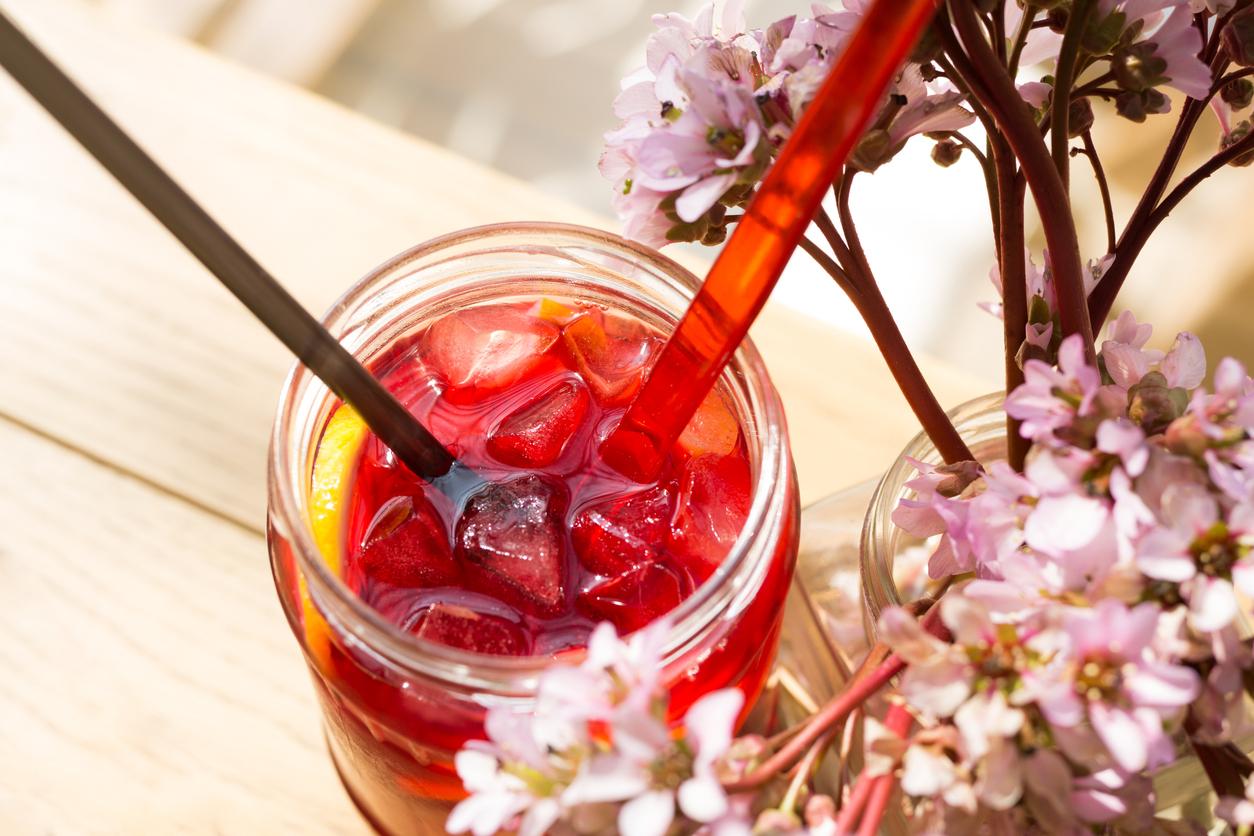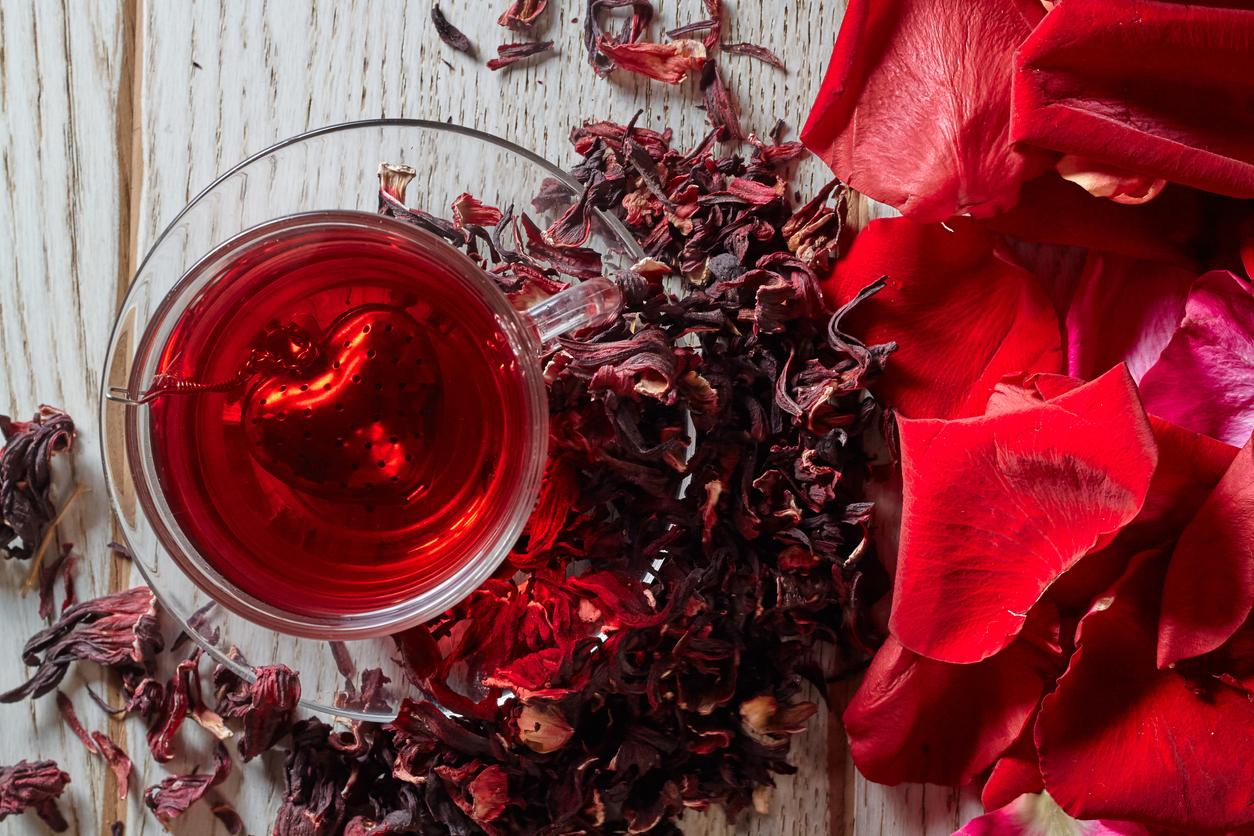The Health Benefits of Hibiscus Are Plentiful — Here's What the Flowering Plant Tastes Like
Astringent, sweet, and fruity all at once, hibiscus is a unique and delicious plant.
Published Feb. 12 2024, 12:11 p.m. ET

Across cultures throughout history, people have turned to herbal remedies like consuming hibiscus and other flowering plants as safe ways to maintain and improve their health and reduce inflammation.
From the protective benefits of a plant-based diet against disease to trendy supplements that help our health, the planet offers endless natural options for anyone seeking ways to bolster their well-being.
For those who have heard of hibiscus (which is technically a flowering plant, not a flower, per Bon Appétit), and are now looking to turn to the centuries-old tradition of consuming this flowering plant for its health benefits, you may be wondering what hibiscus actually tastes like. Keep reading to learn about hibiscus' unique taste, as well as some of the ways this powerful plant can support your health.

Hibiscus is found all over the world.
There are hundreds of species of the genus Hibiscus, which are native to many regions around the world, and known by many different names, according to the Royal Botanic Gardens, Kew's Plants of the World Online database. Hibiscus has been cultivated and enjoyed everywhere from Central America to Africa and beyond.
What does hibiscus taste like?
Known for its vibrant, beautiful flowers, hibiscus has been described as cranberry-like in taste, according to FONA International.
While commonly consumed when dried and turned into a tea, according to FONA International, hibiscus can also add floral notes to baked dishes, and can also be used when making sangria.
According to Bon Appétit, hibiscus is versatile enough to be ground into a powder and incorporated as a spice into baked goods like churros, or puréed and added to chutney to accompany fruits.
Through these preparations, hibiscus was described as tart and sour, though when masterfully transformed into a syrup or other imaginative concoction, its sweetness is amplified by complementary ingredients.
YouTuber Weird Explorer described fresh hibiscus as sour, flavorful enough to be added to a salad without the need for dressing, and similar in tartness to both cranberry and green jujube.

What does hibiscus tea taste like?
In my own health journey to find natural ways to fight inflammation, lower cholesterol, and aid in weight management, I turned to hibiscus tea to excellent results.
According to the Cleveland Clinic, hibiscus tea may support these health benefits and more.
Hibiscus tea is known to be a powerful antioxidant source that helps the body's fight against bad bacteria. In my experience the hibiscus tea's tartness was not as extreme as cranberries, nor as sour as some strawberries I've eaten, and its deliciousness was amplified when I mixed it with other fruity teas or chilled and used it as the base for a fruit smoothie.
One Redditor described the taste of hibiscus tea as naturally sweet, as if it already contained Splenda. Commenters affirmed its sweetness compared to other herbal teas while acknowledging its predominantly sour profile.
An article from Sencha Tea Bar describes vitamin C-rich hibiscus tea as being astringent in taste, as well as sweet and fruity to counter its sour profile.
Stef Pollack of Cupcake Project creatively described hibiscus tea as "part citrus, part grape, possibly pomegranate, and a big dose of your garden when a soft breeze blows by."

Here's how to make hibiscus tea taste better.
One idea to cut the tartness of hibiscus tea is to sweeten it naturally. One way to do this is by including cinnamon sticks and honey (or a vegan honey!) in the preparation, according to Yvette Marquez of the Muy Bueno blog.
For another option that omits and gobs of sugar, the Tartelette blog recommends adding fresh mint and frozen raspberries when preparing hibiscus as a tea.